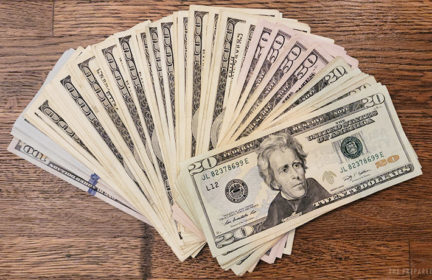Emergency cash – where and how much to store?
How much cash do you stash for emergencies? Where do you stash it? What mix of small and big denominations of currency do you use?
TP tells us to store cash both at home and in our BOB. I do have a little cash at home, but not very much. It’s all in small bills. I also have a small amount of cash in small denominations tucked away in my car. Nothing in my BOB. I don’t really have a sense of how much is enough. Also, where to keep it is somewhat of a problem.
I live with housemates — one housemate at a time. Generally speaking they are honest, but I’ve had my share of losers. I hope that my judgment has gotten better in this regard, but early on a housemate learned that I had some cash in my emergency supplies and he stole it!
(Ridiculous aside: I didn’t know that he had stolen it until he told me about it after he moved out. He was “coming clean.” He said he wasn’t proud of stealing it, but he’d given it back to me. Since I didn’t remember getting any extra money from him I asked him when he’d given it back. He said he’d used it to pay part of his rent the following month! In his mind, because he had given me back the actual bills he’d taken from me, he’d returned the money. It didn’t do any good to explain to him that it was the amount of money that mattered, not the physical bills!)
Now I keep my money in less obvious places and I don’t tell my housemates, but my BOB is a pretty obvious presence in the living room.
-
Comments (8)
-
